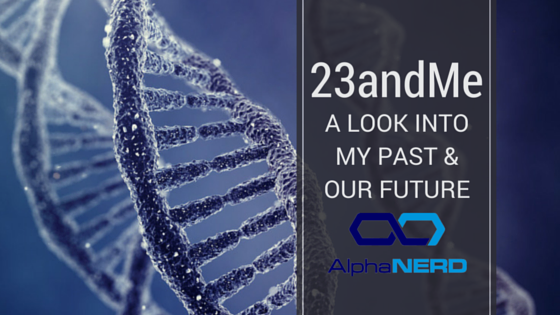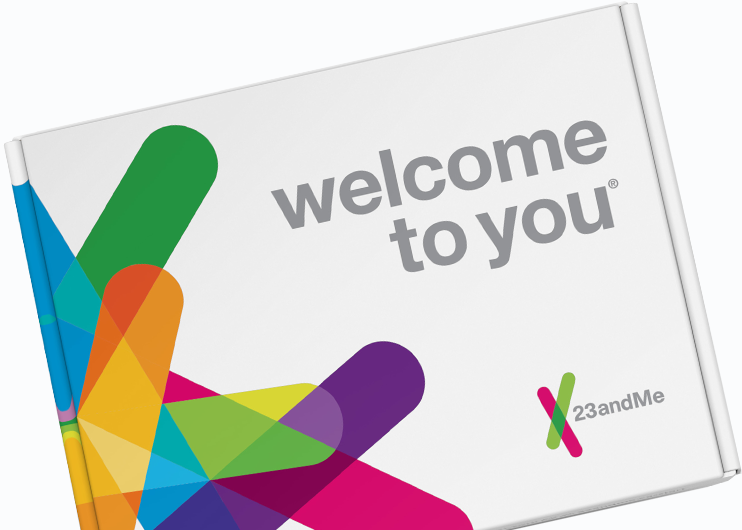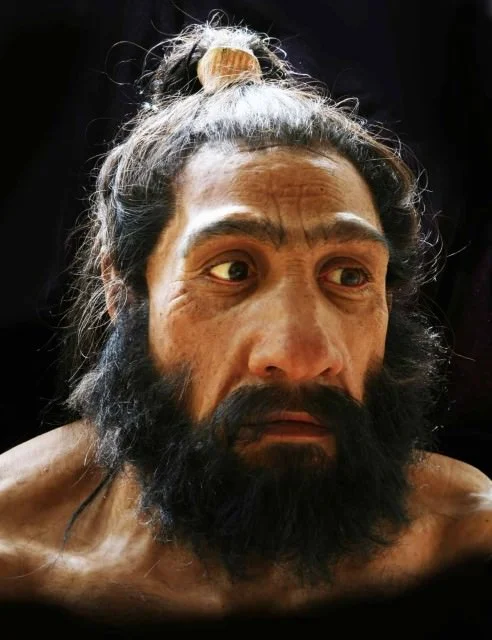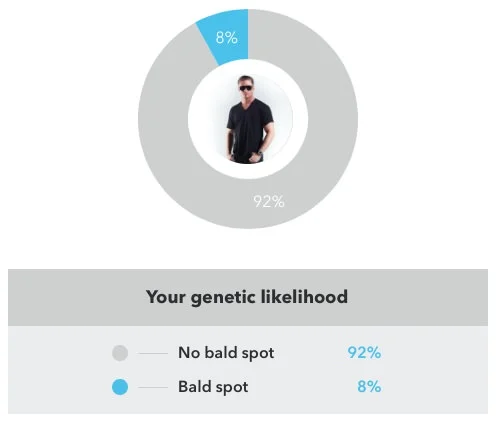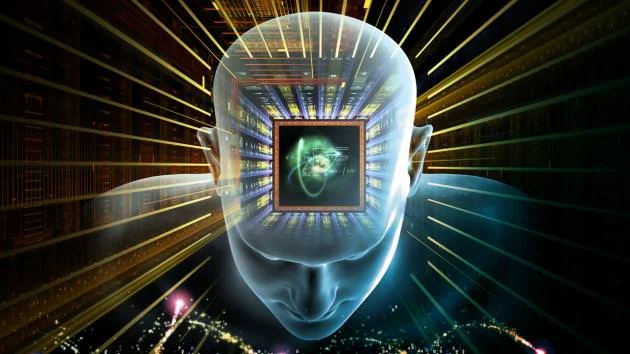23andMe is a glimpse into the future - the future of our society and each of us as individuals. We are nearing a time where everyone will have a comprehensive understanding of their DNA and be able to influence genetic expression (epigenetics) by using this knowledge to make certain lifestyle choices. This will lead to people living longer, healthier, and more comfortable lives. The time is not far off where we will be able to screen and prevent babies from being born with certain genetic variants that lead to disabilities, chronic diseases, and death, all before they're even conceived. Not long after, parents will be able to select particular traits they want their "designer" baby to be born with. If you think that sounds like science-fiction, try to imagine a world where we are altering our own DNA to extend our lives to hundreds of years and beyond, essentially taking evolution into our own hands and accelerating its progress exponentially - a world that many experts at the cutting-edge of this research believe is just a few decades away.
I'm getting ahead of myself here. Before we look into the future, I would like to show you my past and present. When I first heard of 23andMe, I was elated at the possibility of learning about my ancestral composition, especially because I am a mixture of so many different ethnicities and I never knew for certain how much I was of this one or that. I was also excited to learn that the FDA was going to allow 23andMe to send wellness (health) and carrier (disease) reports (I submitted my DNA sample shortly after the FDA disallowed these reports, much to my disappointment; however, they were allowed several months later and 23andMe promptly sent me all the new reports which I received at the end of 2015). Taking the test simply required me to spit a few times into a plastic tube that I received in the mail, ship it back to the lab, and wait a few weeks for my results. I was so excited by it all and impressed with the level of detail that I purchased kits for my mom and dad to get their DNA analyzed. This also allowed me to get further insights and accuracy of my own reports by linking my account to theirs.
Here's how to make one Erik (aka a quick rundown of my ancestry composition): What I am mostly is 27.4% "British & Irish", 22.5% "Iberian" (Spain & Portugal peninsula), 14.2% "French & German", 10.9% "Native American", 7% "Broadly Southern European", and 3.5% "Broadly Northwestern European". To add some flavor to this already diverse mix, I'm also 2.8% "Italian", 2.5% "Broadly European", 1.4% "Broadly East Asian & Native American", 1.3% "Southeast Asian", 1.2% "West African", 1% "Scandinavian", 1% "Ashkenazi", 1% "East Asian" (Chinese), 0.5% "North African", and 0.2% "Sardinian". Stir vigorously and place in oven for 9 months.
A visual representation of my ancestral composition. I am a unique and multi-ethnic snowflake.
If you added all those up, you would get 98.4% and this is because 1.6% of my DNA is "Unassigned" meaning that I am part alien. Ok, actually it means they can't yet classify parts of my DNA, but as they collect more data and improve the "reference datasets used by the algorithm," less of my ancestry should fall in this category. Furthermore, the parts of me that aren't very specific, such as that significant 7% "Broadly Southern European" (which includes the Iberian, Italian, and Balkan peninsulas as well as the island of Sardinia), may end up being reclassified into those more specific populations.
A hyper-realistic bust of a Neanderthal. Apparently man-buns were in back then.
Something else I learned about my DNA, and therefore my ancestors, is that I have 284 Neanderthal variants which is more than 61% of other 23andMe users. This makes up a little less than 4% of my overall DNA, but is associated with having straight hair, less body hair, and more height - all traits that I am grateful to possess. It's fascinating to me that my ancient ancestor(s) interbred with Neanderthal populations before they went extinct about 40,000 years ago. 23andMe explains the background of our common ancestry, migration patterns, how they likely met and interbred, and more.
There is also a report on Haplogroups - where a small portion of your ancestors originated thousands of years ago. My Maternal Haplogroup (my mother's mother's mother's...mother) are families of mitochondrial DNA types that all trace back to a single mutation at a specific place and time and fall under B2a. This group is 50-60,000 years old originating in Asia, entered North America about 12,000 years ago, and is the most common group among Native Americans. My Paternal Haplogroup (my father's father's father's...father) are families of Y chromosomes tracing back to a single mutation at a specific place and time. It is the R1a1a group and is the primary haplogroup of Eastern Europe, where it spread after the end of the Ice Age about 12,000 years ago. This information may or may not be as interesting to you as it is to me, but getting a glimpse back in time from some spit in a tube is awesome to me. For this alone, I think buying this test is worth every penny.
Praise the hair gods!
Fortunately, you get more than ancestry reports and they are equally (if not more) exciting. The next set of reports includes Traits - how certain genetic variants can influence your personal characteristics. Some of this didn't teach me anything new, but was still awesome to read. For example, I read through descriptions of physical attributes of my face, eyes, ears, and hair all based on my saliva sample. It described me down to my digit (finger and toe) ratios to my skin pigmentation all the way to what type of ear wax I have (the non-gross kind, I promise). It even verified that I am likely to prefer salty or savory snacks over sweet ones and that I can smell the asparagus metabolite in pee (if you can't smell it, you lucked out). The most exciting thing about this section for me was the report on age-related hair loss. According to my DNA, I'm not likely to experience hair loss before the age of 40; and if I do have any hair loss when I get older than that, I am unlikely to experience a distinct bald spot. Boom! Science!
Caffeine: my drug of choice
The next set of reports that were very exciting for me to read about were on Wellness. Apparently, I am genetically "more likely to consume caffeine" (*chugs Bulletproof coffee* ...I didn't need to take a DNA test to know that). Next is on alcohol - I'm unlikely to flush after drinking. It also told me that I have a sprinter/power muscle type which is most common in people of Native American ancestry (and superheroes...just sayin'). Finally, this section of the test told me that I am likely not lactose intolerant because I produce the lactase enzyme. It's rare that I consume milk nowadays, but I drank it by the gallons per week when I was growing up, so this is also not a surprise to me.
The final set of reports - the ones the FDA initially made the big fuss over and perhaps the most interesting - are the Carrier Status reports. Basically, there are dozens of genetic disorders/diseases that 23andMe looks for and tells you if you have the genetic variant that would indicate you are a carrier. This has obvious implications to your own health and the health of your children (and their children, etc.). Some of the disorders tested for include ARSACS, Bloom Syndrome, Cystic Fibrosis, Glycogen Storage Disease, Sickle Cell Anemia, and many more. To my knowledge at the time, I had none of the conditions tested; however, I was still nervous when I first scrolled through the summary page, scanning for any positive results. I'm very happy and grateful that of all the carrier traits tested, no variants were detected in my DNA. Hooray!
This is the kind of mutant variant I'm interested in
This has some pretty big implications for someone who does carry a genetic variant and goes back to the point I made at the beginning of this article. Knowledge is power, and knowing that you and/or your offspring are genetically predisposed to a certain disease gives you the ability to be proactive about it. That could mean changing your diet, increasing your activity level (possibly decreasing activity level for some conditions), quitting smoking (why the hell are you smoking anyways?), taking a particular nutritional supplement, and more. Of course, it could also be what gets you to make an appointment with your doctor and start screening for the disease and monitoring symptoms ASAP. A specialist will have the knowledge and resources to help someone manage, slow down, or possibly prevent the onset of such a disease.
Like I said before, the future is not far away, and soon we will have even more useful information and tools at our fingertips. Say hypothetically that you are a carrier of one of these genetic disorders and you had the ability to genetically alter your future child's genome sequencing to prevent him or her from inheriting it... Would you? I don't want to dive too much into the ethics or politics of it, but we will soon be able to make choices such as these to extend our lives and the lives of our descendants. When our great-great-great (ad infinitum) grandchildren look at their DNA, essentially looking into the past, I wonder if they will be as enchanted as I am. I imagine that they will be able to "see" how we expressed our genes through the way we lived and of course see how we took control of our DNA, and therefore our destiny, into our own hands through future technologies. In ways we are only beginning to understand, our past and our future are written in our DNA.

